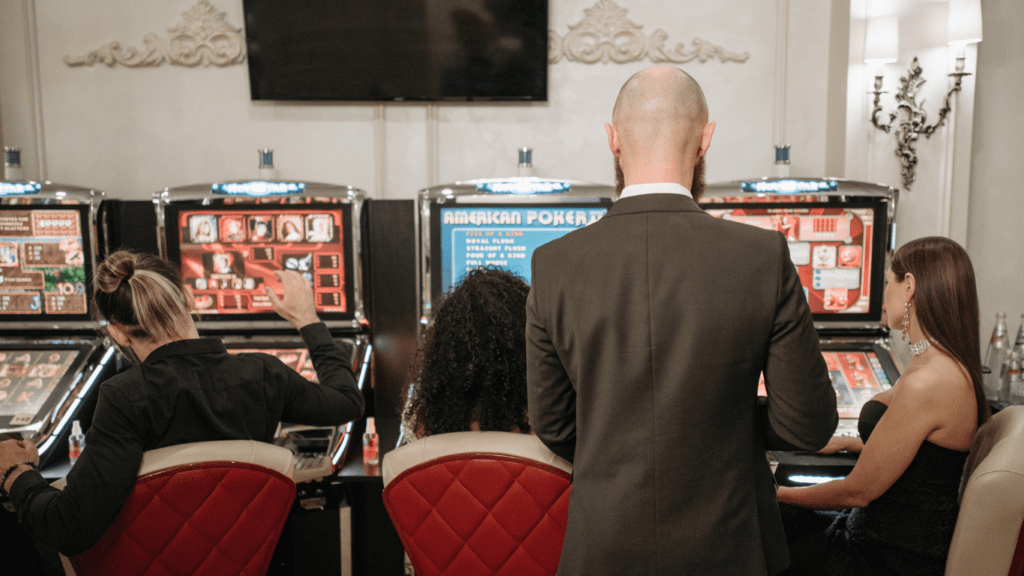Common Gambling Myths
Understanding gambling myths helps in making informed choices, avoiding financial pitfalls. Myths often skew perceptions and foster unrealistic expectations.
Myth: Casinos Let You Win at First
Some people believe casinos intentionally allow initial wins to hook new players. In reality, wins at the start are coincidental. Casinos rely on built-in house edges, mathematical advantages ensuring long-term profits. Players occasionally experience early wins due to probability, not casino manipulation.
Myth: You Can Predict Slot Machine Outcomes
The belief that past spins influence future results is widespread. Slot machines operate on Random Number Generators (RNGs), ensuring each spin is independent, with no memory of previous spins. Patterns don’t exist; outcomes are purely random. Trusting in pattern prediction leads to misguided bets, draining funds without real gain.
The Illusion of Control
Players often believe they can influence the outcomes of games through specific actions or beliefs, leading to costly mistakes.
Myth: Systems and Strategies Always Work
Many gamblers trust systems and strategies to guarantee wins. These strategies, like progressive betting or card counting, frequently promise high returns. However, casinos employ measures like regular shoe shuffling in card games to counter these techniques. The house edge remains, ensuring the odds favor the casino over time. Successful outcomes from strategies tend to be coincidental rather than a result of the methods used.
Myth: Lucky Charms Influence Outcomes
- Some players carry objects they believe bring good luck.
- These charms vary from personal trinkets to specific attire.
- Despite personal testimonies, there’s no evidence that such items affect game outcomes.
- Gambling outcomes rely on probabilities, not supernatural influences.
- Holding onto lucky charms can foster a false sense of confidence and lead to increased risk-taking, which rarely leads to consistent winnings.
Misunderstanding Odds and Probabilities

The belief that gambling outcomes can be predicted often leads to financial losses. Misinterpreting odds and probabilities is a common issue that results in misguided betting decisions.
Myth: Due for a Win
Some gamblers think they’re bound to win after a series of losses. This myth stems from the misunderstanding of probability, known as the Gambler’s Fallacy. Each game or spin carries its own odds, independent of previous outcomes. For example, a coin flipped heads ten times doesn’t mean tails is ‘due.’ Casinos exploit this misconception by promoting the idea of eventual balance, while mathematically, the chance remains constant.
Myth: Past Events Affect Future Outcomes
Believing past events influence future results misleads many gamblers. Patterns in previous game outcomes are often seen as predictors, when, in reality, games like:
- roulette
- slots
are governed by Random Number Generators (RNGs). These systems ensure every outcome is separate and unbiased. Dice rolls or card draws maintain equal probability each time, irrespective of prior sequences. Understanding this helps avoid betting based on non-existent streak predictions.
Psychological Traps
Psychological traps in gambling can lead to poor decisions and financial losses. Familiarizing myself with these traps helps me avoid costly mistakes and enjoy gambling responsibly.
Myth: Chasing Losses Will Lead to Wins
Many gamblers believe that chasing losses leads to eventual wins, but this myth could be financially harmful. When I chase losses, I risk falling into a cycle of increasing bets in a futile attempt to recoup money, often leading to even larger losses. The house edge ensures that I’m more likely to lose over time. Instead of chasing, I set limits on my bets and walk away when necessary, ensuring a disciplined approach.
Myth: Near Misses Mean You’re Close
The illusion that near misses indicate an impending win is a common psychological trap. Slot machines and other games often present near misses to evoke a sense of hope and persistence. While it might seem like I’m close to winning, near misses don’t affect the odds of future outcomes. Each game or spin remains independent, and outcomes are random. Recognizing this helps me avoid overvaluing these occurrences and manage my gambling behavior effectively.
Impact on Financial Decisions
Gambling myths shape financial behaviors with potentially costly results. Misconceptions about gambling often lead to misguided strategies and decisions.
Myth: Gambling Can Be a Reliable Source of Income
Some believe gambling offers a steady income. However, most games have a built-in house edge, reducing long-term profits. While occasional wins occur, relying on gambling for income is risky due to unpredictable outcomes and financial instability. Instead, I focus on understanding game odds and managing budgets effectively to avoid financial stress.
Myth: Small Bets Mean Little Risk
Many assume small bets pose minimal risk, but frequent betting accumulates losses over time. Even small stakes can lead to significant financial impact when repeated. Effective bankroll management is essential for controlling losses, as is recognizing that even seemingly harmless bets can deplete funds if unchecked. My strategy involves setting strict limits and monitoring spending to maintain control.



 _____
Marshane Jacobsin – Digital Tools Developer
Marshane Jacobsin is the tech innovator on the team. She designs and develops intuitive tools that empower gamblers, from calculators to betting trackers. Marshane's expertise ensures that users have access to cutting-edge resources that enhance their gambling strategies while promoting responsible play.
_____
Marshane Jacobsin – Digital Tools Developer
Marshane Jacobsin is the tech innovator on the team. She designs and develops intuitive tools that empower gamblers, from calculators to betting trackers. Marshane's expertise ensures that users have access to cutting-edge resources that enhance their gambling strategies while promoting responsible play.